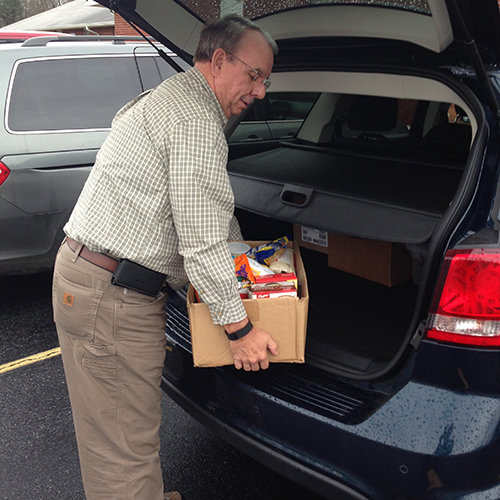How well does our post-Christian culture explain goodness and graciousness, lovingkindess and forgiveness?
Those who believe in a mindless, soulless, heartless, and above all godless universe are hard pressed to explain the origin of kind-mindedness, sweet-spiritedness, and heart-felt love. Philip Yancey writes how “many post-Christians (atheists, humanists, secularists, and multi-culturalists) cannot explain their good instincts” and that “Sigmund Freud found himself puzzled by his.” Yancey explains how Sigmund Freud “admitted that something inside him caused him to act morally … though he could not account for that behavior.”
While I have been awe-struck by the Smoky Mountains in autumn, Yosemite National Park in the spring with waterfalls gushing, the Grand Canyon and Monument Valley at sunset, and Niagara Falls with a brilliant rainbow shining through the mist, I am most astounded by human beings created in the image of God with the God-given abilities! I marvel at the heights to which we can go in creativity and ingenuity, in art and music, science and medicine, ministry and missions! What a mind, soul, and heart we have!
 Ricky Thrasher, GBC state missionary with Church and Community Services, unloads donations to a food pantry. GEORGE CLINE/Special
Ricky Thrasher, GBC state missionary with Church and Community Services, unloads donations to a food pantry. GEORGE CLINE/SpecialAfter sharing a mother’s undying and undeserved love for a foolish and vicious son, Ravi Zacharias asks this question: “Where did such a concept of love come from in the first place? May I suggest that a sacrificial love as noble as that could not have come from mindless matter but was placed there by our Creator, God Himself.” It is mind-boggling, soul-stirring, and heartwarming to see countless examples of God-inspired love that soars above a dog-eat-dog survival of the fittest struggle.
John Wilson, a pediatrician from North Carolina, went to what many would say is “God-forsaken” Somalia into a camp that could well be described as a hell on earth. Why? He said, “Sometimes I feel like Jonah out here – I came because I thought I should, whether or not I felt like it.” What, or Who, stirred those feelings?
Philip Yancey tells about a young nurse named Lois who shared, “I think of my nursing school classmates. At graduation we all compared assignments: a new hospital in Canada, an Air Force position in Greece, a famous teaching hospital in San Diego, a private school in Minneapolis. I remember the expression on my friends’ faces when I said I would be doing relief work in a war-stricken Muslim country on the horn of Africa. 'That’s really an insane thing to do!’ one girl said.”
If we are simply living a self-centered life in a mindless, soulless, and heartless world then it doesn’t make sense! Nevertheless it is satisfying and fulfilling to her! We may be told we are living in a world completely devoid of spiritual/supernatural life, but there are many oases of fertile spirituality.
Charles Colson began his book The Faith sharing two stories about such oases! The first took place in Nickel Mines, PA on the morning of Oc. 5, 2006 when a milkman named Charles Roberts who was “angry at God” burst into a one-room classroom in an Amish community. Marian Fisher, the oldest girl, pleaded with him, “Shoot me and let the others go.” He shot ten girls. Five survived.
We may be told we are living in a world completely devoid of spiritual/supernatural life, but there are many oases of fertile spirituality.
Colson observes, “While Charles Roberts chose to unleash his anger on the innocent, the Amish chose to bestow forgiveness on the guilty … the images that stayed in the imagination were of Amish men and women attending Charles Roberts' funeral in the graveyard of his wife’s Methodist church. They insisted it was not their place to judge him … As money poured in to address the medical bills of the wounded girls, Amish community leaders stipulated that a fund be set up from these resources to take care of the killer’s widow and three children.”
The second story is about what Christians did in Roman cities to take care of the victims of the plagues that swept through such communities claiming up to 40% of the population. When family and friends fled from those infected, Christians earned the reputation for caring for the sick and burying the dead when no one else would! Colson begins his first chapter with these words: “What we witnessed at Nickel Mines and in the times of the Roman plagues is true Christianity – sacrificial love, concern for all people, forgiveness, and reconciliation, evil overcome by good. These two examples, drawn from thousands I might have selected, represent signs of the Kingdom of God announced by Jesus and lived by His follower to this day.”
Next time we shall continue to explore this subject from a different perspective when we ask our fourth of seven questions: How well does our post- Christian culture cultivate volunteers willing to work in disaster relief, soup kitchens and other crisis missions?